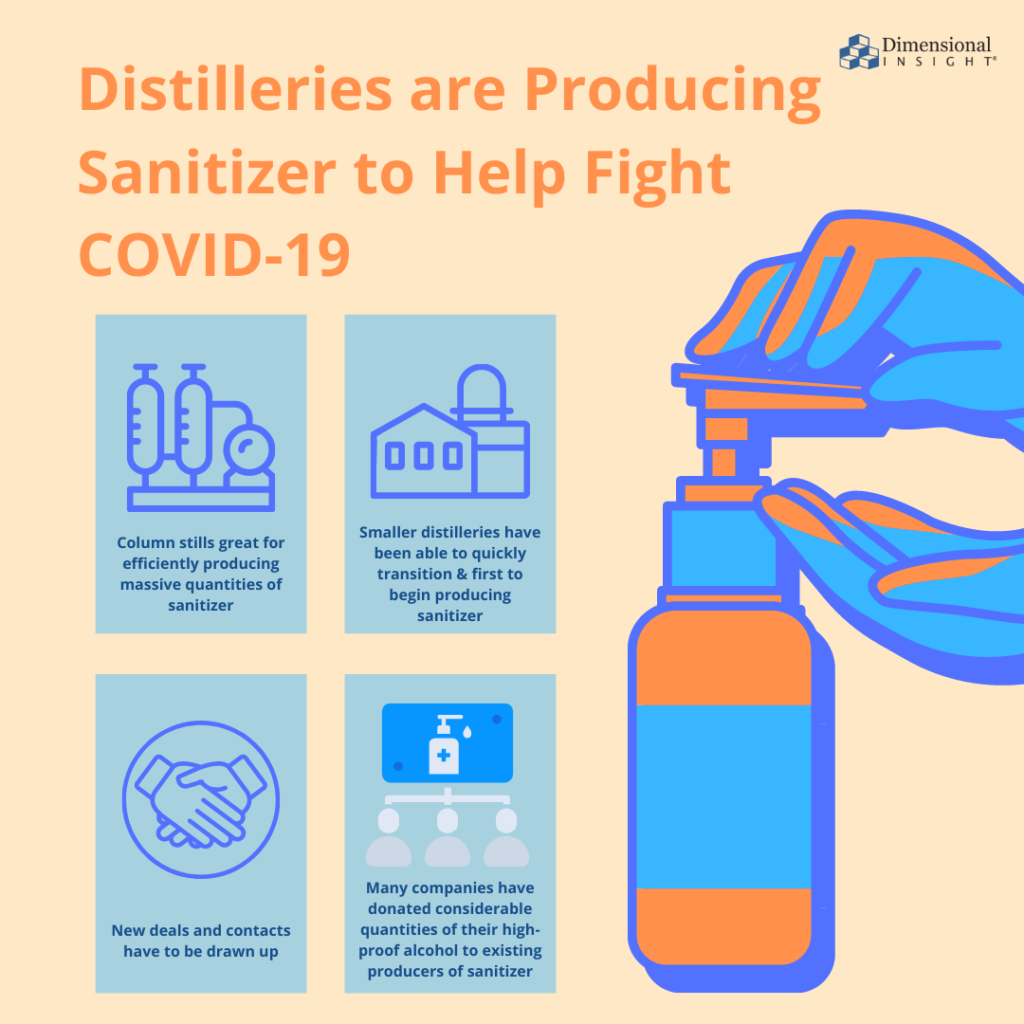Distilleries across the country have stepped up their production in the face of the COVID-19 pandemic. But the increase is not just due to a rising demand for alcoholic beverages. These distilleries have begun producing sanitizer products to help prevent the virus from spreading.
While this might sound strange at first, it actually makes a lot of sense. Ethanol, the type of alcohol used in beverages, is also the primary ingredient in most sanitizers. The stills that are used to distill the liquor are also capable of brewing up large quantities of sanitizer at once.
Many companies are facing difficulty due to complications in the process or regulations on sanitizer products. But even in the face of economic uncertainty, they are willing to take on these expenses and challenges for the good of the public health.
The process
Column stills, which are commonly used to distill vodka and gin, happen to be great for efficiently producing massive quantities of sanitizer. This made the transition relatively quick and easy for the clear liquor distilleries. Rum and whiskey, by contrast, acquire most of their alcohol content after the distillation process is complete, making their stills less ideal. However, that hasn’t stopped rum and whiskey producers from joining the fight, even when it occasionally means buying some new equipment, or only producing what they can manage.
Thanks to the relative scale of their production lines, smaller distilleries have been able to quickly transition, making them the first to begin producing sanitizer. But larger companies have begun lending their resources to the effort as well.
Of course, most ingredients in sanitizer are not used by distilleries, so new deals and contacts have to be drawn up with the producers of those components. Additionally, equipment must often be purchased or modified, and experts who know about producing sanitizer must be brought in.
Due to the considerable challenges of production, many companies have instead donated considerable quantities of their high-proof alcohol to existing producers of sanitizer, who were better able to process it.

Problems with production
However, it not always easy to get the sanitizer into the hands of those who need it. One problem that many distilleries are facing is FDA regulations on sanitizer formulas. These rules are important for keeping low-quality, dangerous, or ineffective sanitizer products off the shelves in stores. However, distilleries that are just beginning the process of making sanitizer often have a very hard time jumping through the regulatory hoops.
One example of this is the requirement that all consumer-grade sanitizer products must contain a denaturant. A denaturant is an extremely bitter compound that gives toxic products a horrible taste to prevent babies or young children from trying to ingest them. However, most of the approved denaturants listed by the FDA are too effective to be used in a commercial liquor still without permanently tainting those stills with the bitter taste. This forces some distilleries to destroy their own production equipment if they want to personally help with the sanitizer-making process.
Restrictions on marketable sanitizer have forced some brands to get creative. A few companies have begun calling their product “hand cleaner” to avoid the regulations on sanitizers, or including it as a ‘free gift’ with the purchase of a bottle of liquor, which avoids the rules about selling it.
Others have opted to side-step the red tape around consumer-grade sanitizer, and donate what they produce directly to hospitals, since medical-grade sanitizer has fewer restrictions, making it easier to produce.
Conclusion
Even with the incredible number of companies that are now working to produce sanitizer products, the biggest problem seems to be keeping up with demand. And with no end to the pandemic in sight, it seems unlikely that that demand will be slowing down any time soon. Larger sanitizer producers may ramp up their production to meet the need, or some distilleries may permanently add sanitizer to their portfolio. As with so many things in the current times, we can’t be certain just yet.
- The CBMTA is Here to Stay! Here’s Why That’s Good for Craft Brewers - January 6, 2021
- High-End Liquor Sales are Recovering Slowly - November 10, 2020
- How to Reach New Customers in 2021 - November 5, 2020




